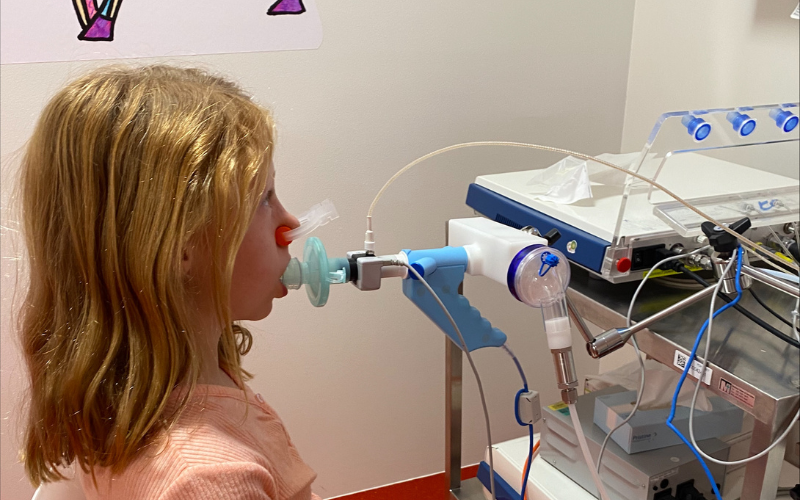Search
Showing results for "lung disease preterm"
Research
A systematic approach to multiple breath nitrogen washout test qualityThe application of the systematic review improved inter-observer agreement but did not affect reported multiple breath washout outcomes

News & Events
New study to better understand how bronchiectasis develops during childhoodA new research project – the WA Paediatric Bronchiectasis Cohort Study – officially commenced this month with the aim of looking at children with bronchiectasis in Western Australia, like nine-year-old Holly (pictured), to better understand how this disease develops during childhood.
Research
Phase 2b Randomized, Double-blind, Placebo-controlled Study to Evaluate the Safety and Efficacy of MEDI8897, a Monoclonal Antibody With an Extended Half-life Against Respiratory Syncytial Virus, in Healthy Preterm InfantsJennifer Peter Kent Richmond RN MBBS MRCP(UK) FRACP Clinical Research Manager Head, Vaccine Trials Group Jennifer.Kent@thekids.org.au Clinical
Research
Is forced oscillation technique the next respiratory function test of choice in childhood asthmaWhile spirometry contributes to asthma diagnosis and management in older children, it has a limited role in younger children whom are unable to perform FOM.
Research
An Official ATS/ERS Workshop Report: Evaluation of Respiratory Mechanics and Function in the Pediatric and Neonatal Intensive Care UnitsThis report summarizes techniques available for ventilated and spontaneously breathing infants and children in the ICU
Research
Respiratory function in healthy Emirati children using forced oscillationsForced oscillation technique measurements were feasible in Emirati school-children. New forced oscillation technique reference equation in Emirati children were derived.
Research
The all-age spirometry reference ranges reflect contemporary Australasian spirometryAdvances in statistical modelling have allowed the creation of smoothly changing spirometry reference ranges that apply across a wide age range and better...
Research
Influence of secular trends and sample size on reference equations for lung function testsThe aim of our study was to determine the contribution of secular trends and sample size to lung function reference equations, and establish the number...

News & Events
Keelan has ‘survived and thrived’, thanks to researchTen-year-old Keelan Mullins is known to his mum Clare Hindle as her ‘miracle baby’. Keelan was born in March 2013 at 26 weeks’ gestation and weighing just 1096 grams.

News & Events
Wal-yan respiratory researchers presented with prestigious awardsFour outstanding researchers from the Wal-yan Centre - Professor André Schultz, Professor Stephen Stick, Rebecca Watson and Michael Beaven - have been presented with prestigious awards in acknowledgement of their research aimed at improving the lives of children with respiratory illness.
